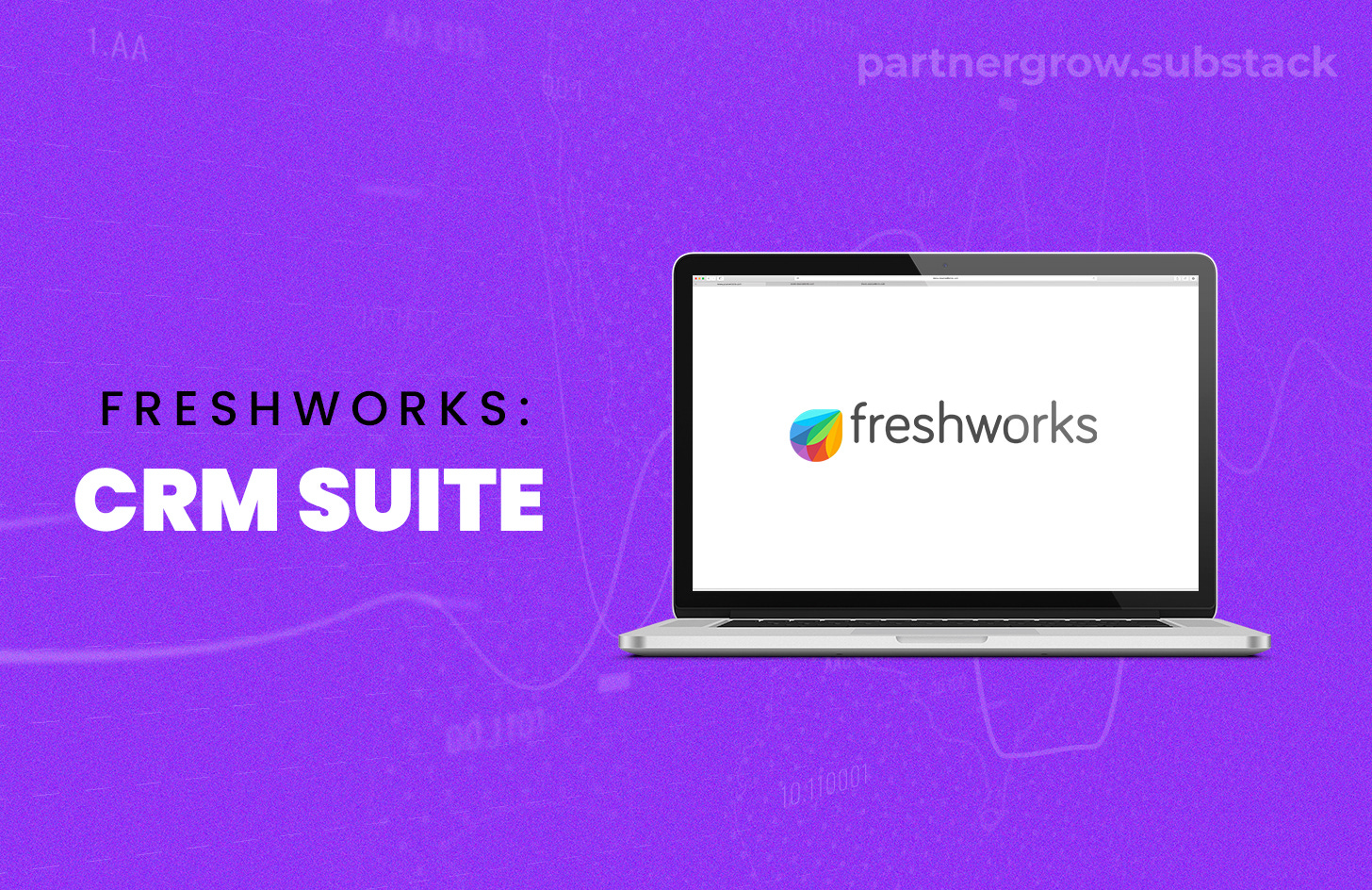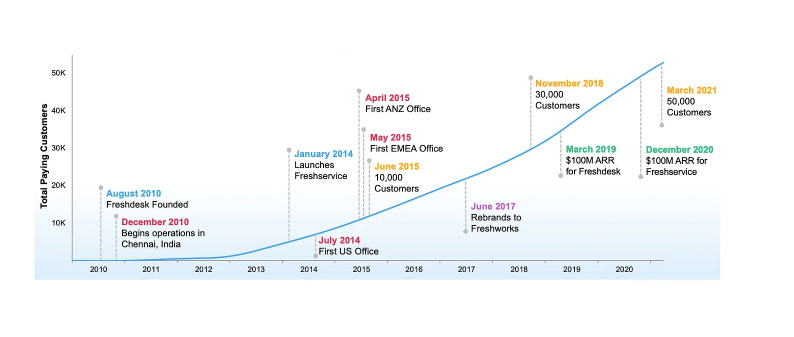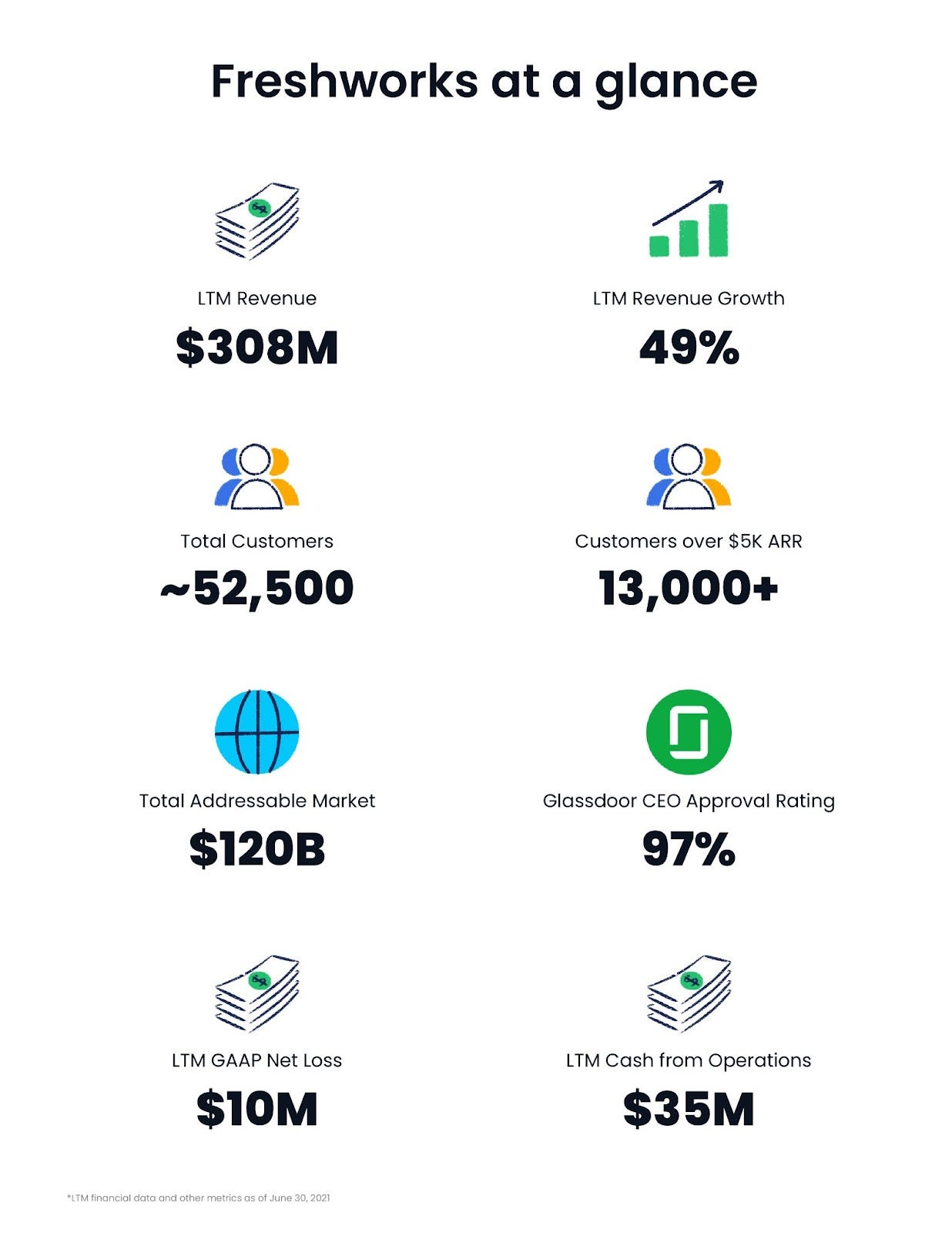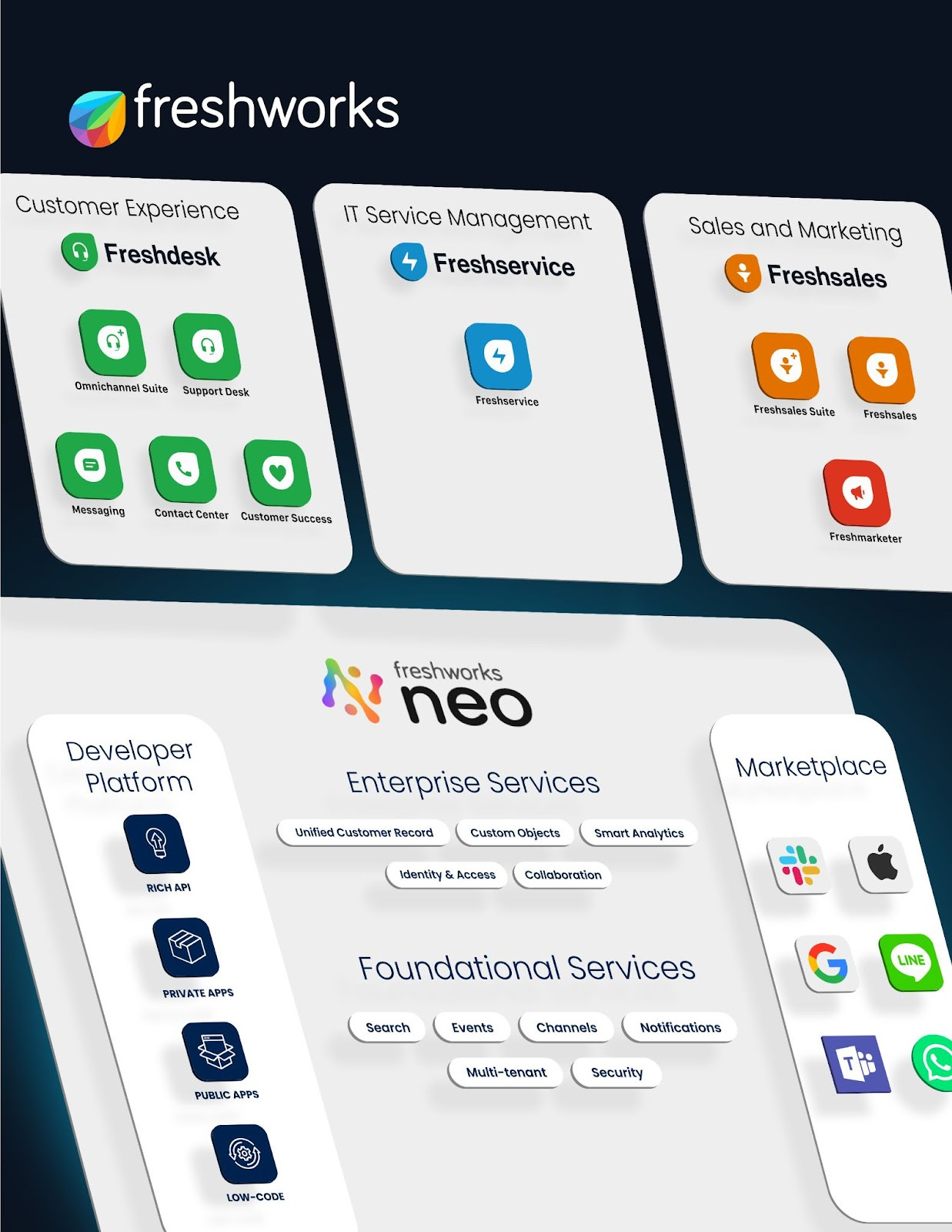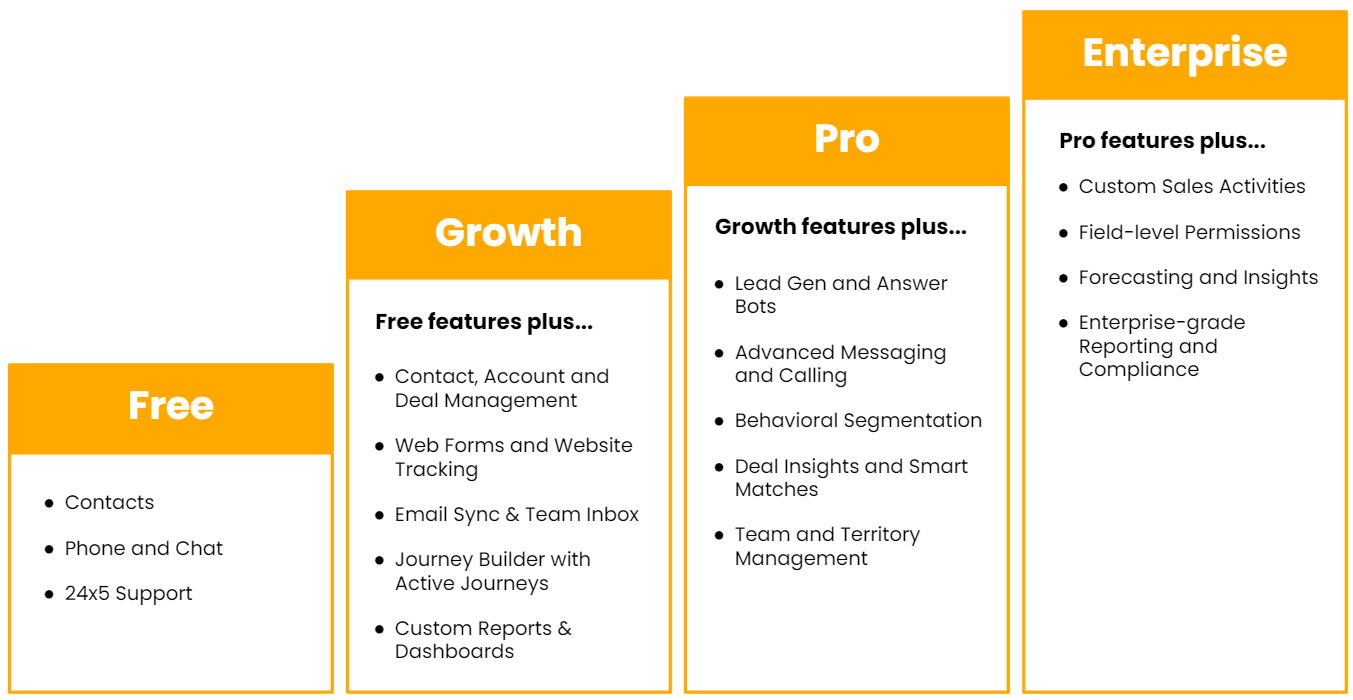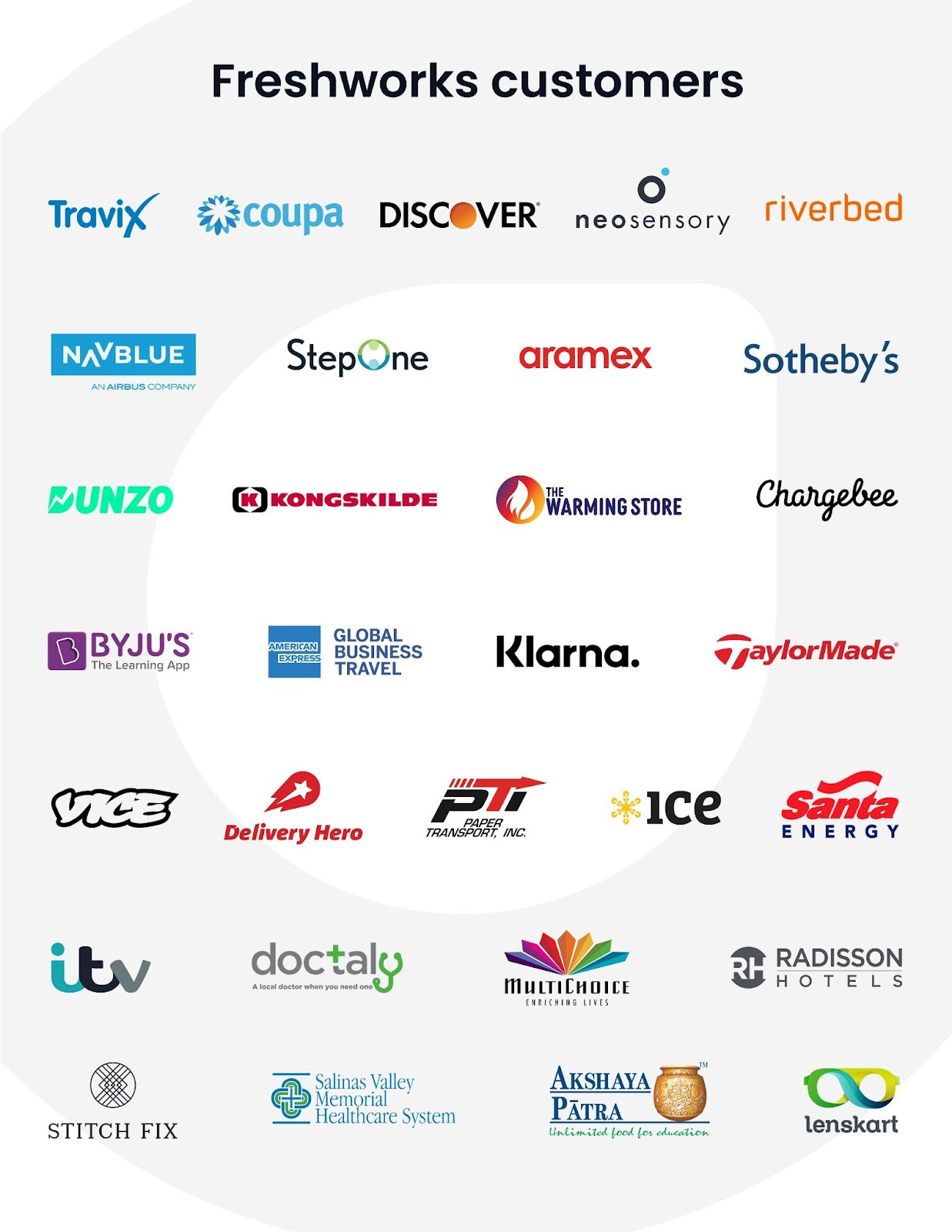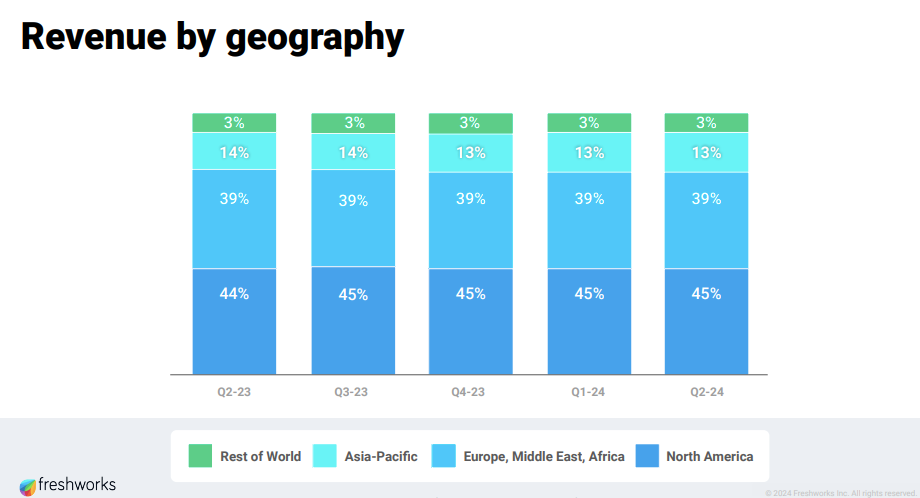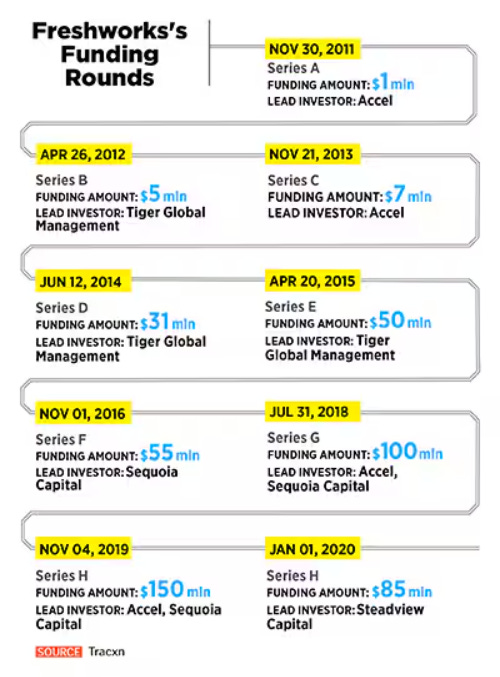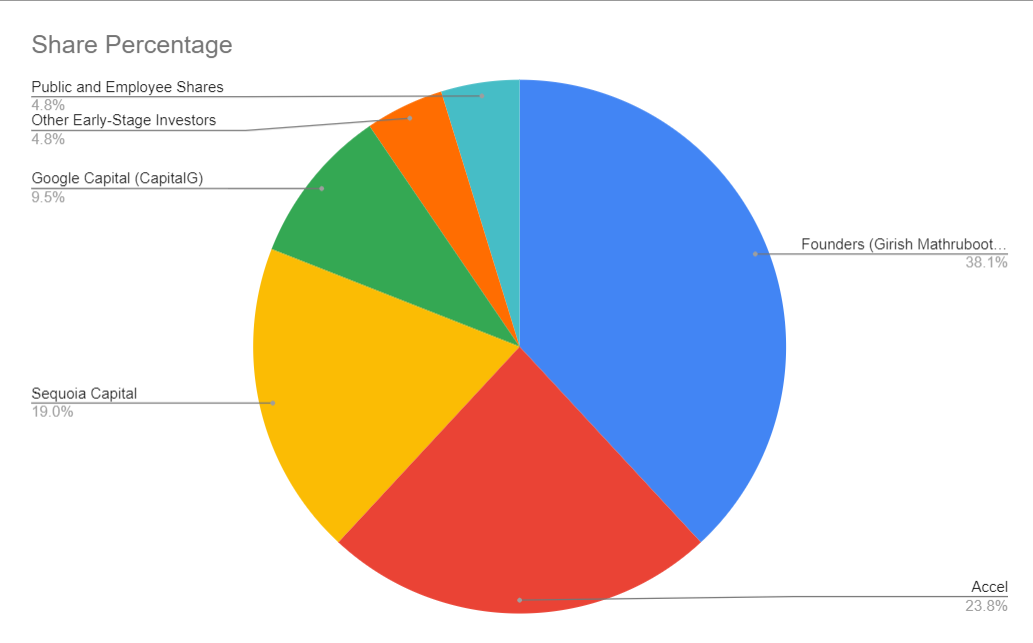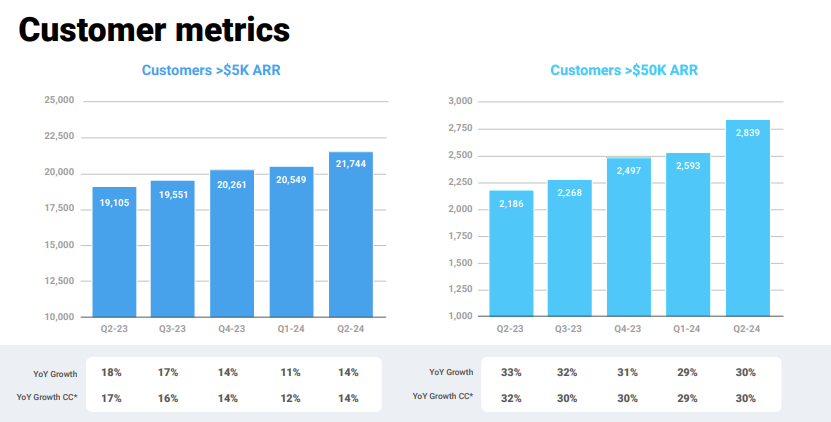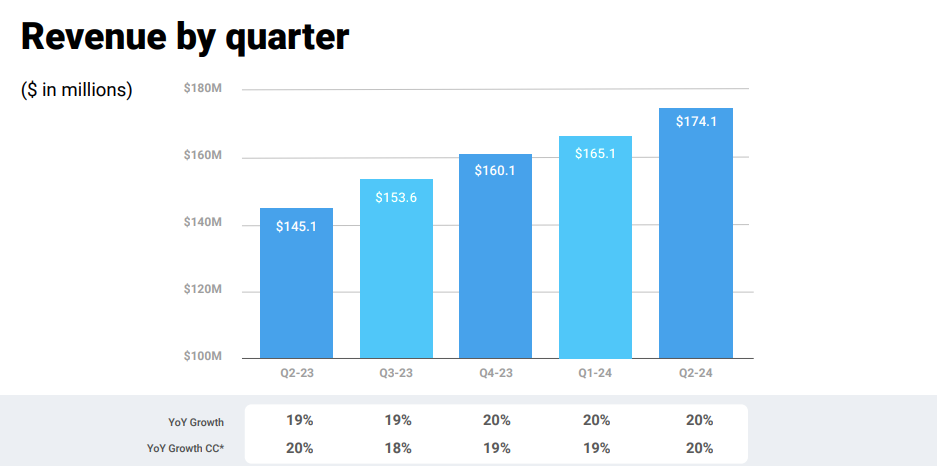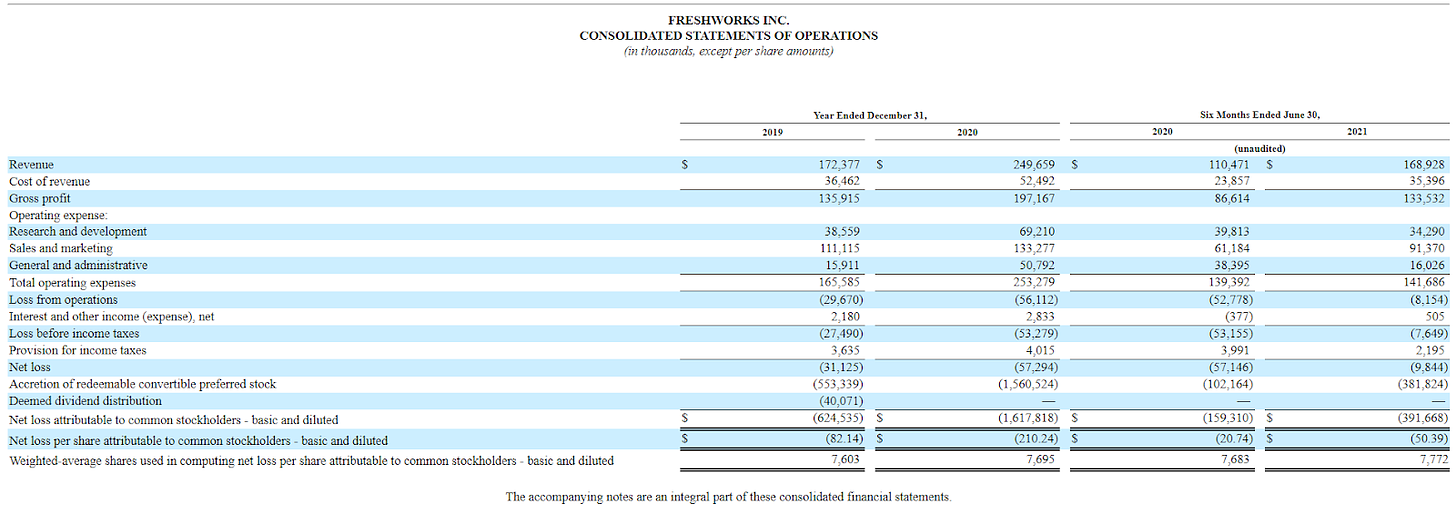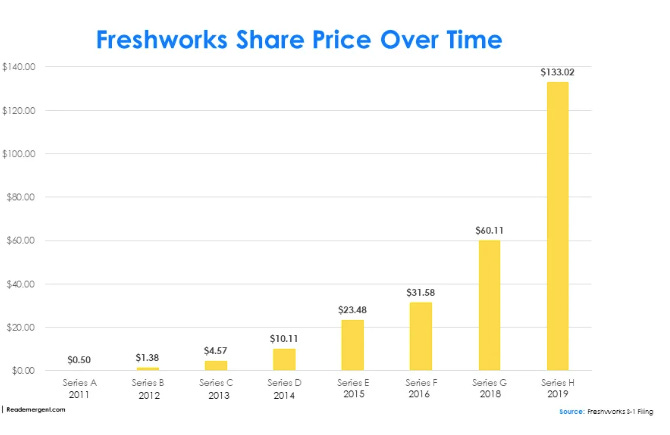👋 Hi, it’s Rohit Malhotra and welcome to Partner Growth Newsletter, my weekly newsletter doing deep dives into the fastest-growing startups and S1 briefs. Subscribe to join readers who get Partner Growth delivered to their inbox every Wednesday and Saturday morning.
Latest posts
If you’re new, not yet a subscriber, or just plain missed it, here are some of our recent editions.
Freshworks: From Chennai to the Nasdaq
From a 700-square-foot warehouse in Chennai to the global stage of Nasdaq, Freshworks' rise is a story of innovation, resilience, and strategic growth. The company's journey from a small startup to a publicly traded company on the Nasdaq showcases its dedication to simplifying business processes through intuitive, user-friendly software. Let us dive into how Freshworks has carved a niche for itself in the highly competitive SaaS landscape.
Freshworks (FRSH) Stock Overview
Current Price: $11.68 (as of market close)
Market Cap: $3.52B USD
52-Week Range: $10.96 - $24.28
IPO Details:
Freshworks' September 2021 IPO marked a significant milestone in the company’s growth trajectory. The proceeds from its IPO were channelled into fueling its ambitious growth agenda, which includes product innovation, enhancing AI capabilities, and solidifying its global presence.
Here's a breakdown of how Freshworks planned to utilize the funds:
Product Development and Innovation: Significant investment in expanding its SaaS offerings, particularly in AI and automation, to keep pace with evolving customer needs.
Sales and Marketing: Enhanced focus on customer acquisition, especially in mid-market and enterprise segments.
Geographical Expansion: Strengthening its foothold in key markets like North America and Europe while exploring growth opportunities in emerging markets.
General Corporate Purposes: Covering working capital, operational expenses, and potential acquisitions to complement its product offerings.
These strategic investments not only aimed at immediate growth but were also essential in positioning Freshworks as a leader in the digital transformation movement.
Company Overview:
Freshworks is a prominent player in the SaaS industry, focused on delivering user-friendly, scalable software solutions that simplify business processes. Its flagship products—including Freshdesk, Freshservice, and Freshsales—are designed to enhance customer support, IT service management, and sales. Freshworks’ philosophy of delivering "delight made easy" has resonated with over 52,500 businesses globally, positioning it as a key enabler in the digital transformation of companies across industries.
Recent Developments:
Freshworks continues to innovate across multiple fronts, ensuring it remains at the cutting edge of the SaaS landscape.
Launch of Unified Customer Cloud: This solution provides businesses with a comprehensive, 360-degree view of customer interactions, helping break down data silos and deliver better customer experiences. As businesses grow more data-dependent, this holistic approach is critical to maintaining customer satisfaction.
Expansion of AI Capabilities: Freshworks has invested heavily in AI, integrating advanced automation and predictive analytics into its software. These features boost user productivity and reduce operational bottlenecks, allowing businesses to achieve faster time to value.
Growth in Mid-Market and Enterprise Segments: Freshworks continues to gain traction among larger organizations by leveraging a robust outbound sales approach and an expanding partner ecosystem.
Strategic Partnerships: Collaborations with technology giants like Google, Microsoft, and Amazon are opening up new go-to-market opportunities and enhancing product offerings.
Freshworks' ability to continually expand and innovate in these key areas ensures it is well-positioned for sustained growth.
Beginnings
Freshworks’ journey began in 2010, when Girish Mathrubootham founded the company after a frustrating experience with poor customer service. This inspired him to create Freshdesk, a simple, effective solution that addressed common customer support challenges. From those humble beginnings in a 700-square-foot warehouse in Chennai, Freshworks has grown into a global SaaS leader, serving over 52,500 businesses in more than 120 countries. Its mission remains the same: to make it easy for businesses to delight their customers.
The Market Opportunity: A $120 Billion Space
Freshworks operates in a massive market, with a total addressable market (TAM) projected to reach $120 billion by 2025. This market includes $76 billion in CRM solutions and $44 billion in System and Service Management (SSM). With products that cater to businesses of all sizes, Freshworks is poised to capture a growing share of this expanding market.
The global demand for digital transformation is driving Freshworks' growth, as companies seek to enhance customer and employee experiences with modern, cloud-based software solutions.
CRM Market Segment
The CRM market is one of the largest segments within Freshworks’ addressable market. This market includes a range of solutions like customer service, contact center, sales force automation, and marketing campaign management.
Current Market Size (2021): $58 billion
Projected Market Size (2025): $76 billion
The CRM market is expected to grow at a compound annual growth rate (CAGR) of approximately 7%, driven by the increasing demand for digital transformation, customer experience improvements, and automation in customer-facing processes.
System and Service Management (SSM) Market Segment
The SSM market, encompassing IT service management, IT operations, and automation, is projected to grow from $34 billion in 2021 to $44 billion by 2025. Freshworks’ Freshservice product is particularly well-suited to capitalize on the rising complexity of IT environments and the demand for efficient service management.
Current Market Size (2021): $34 billion
Projected Market Size (2025): $44 billion
Freshworks Product Suite: Simplifying Business Operations
Freshdesk: Where It All Began
Freshworks' journey began with Freshdesk, a customer experience (CX) product designed to help businesses manage customer inquiries and support tickets more effectively. Freshdesk quickly became popular for its ease of use and robust features, making it a go-to solution for businesses looking to enhance their customer service operations.
1. Freshdesk: Customer Experience (CX) Management
Freshdesk was the first product launched by Freshworks in 2011. It is a customer support platform designed to help businesses manage customer inquiries efficiently. The software consolidates all customer interactions into a single interface, allowing support teams to track, prioritize, and resolve issues across various channels.
2. Freshservice: IT Service Management (ITSM)
Freshservice is a cloud-based IT service management solution that helps organizations manage their internal IT operations. Launched as a complementary product to Freshdesk, Freshservice is designed to streamline IT support and ensure the smooth operation of IT services within a company.
3. Freshsales: Customer Relationship Management (CRM)
Freshsales is an all-in-one CRM platform that provides businesses with tools to manage their sales processes from lead generation to deal closure. It is designed to help sales teams track interactions with potential and existing customers, manage pipelines, and automate sales activities.
4. Freshmarketer: Marketing Automation
Freshmarketer is a marketing automation platform that helps businesses design, execute, and optimize their marketing campaigns. It integrates seamlessly with Freshsales, enabling a unified approach to customer engagement across marketing and sales.
5. Freshworks CRM: Unified Customer Engagement
Freshworks CRM combines the capabilities of Freshsales and Freshmarketer into a single platform, providing businesses with a comprehensive solution for managing customer relationships. It breaks down silos between sales and marketing, ensuring a cohesive customer experience across all touchpoints.
All Freshworks products share common principles: they are designed to be intuitive, easy to deploy, and scalable. This makes them accessible to businesses of all sizes, from small startups to large enterprises. Freshworks also emphasizes integration across its product suite, ensuring that businesses can easily expand their use of Freshworks products as their needs evolve. Whether it's enhancing customer support, managing IT services, or driving sales growth, Freshworks provides the tools businesses need to delight their customers and employees, all while maintaining a focus on user experience and simplicity.
Business Model: Product-Led Growth with a Focus on Scalability and Efficiency
Freshworks operates with a Product-Led Growth (PLG) business model, which has been a key driver of its rapid expansion across various markets. The core idea behind this model is that the product itself is the primary driver of customer acquisition, conversion, and expansion. This approach has allowed Freshworks to scale efficiently, attracting a broad range of customers from small businesses to large enterprises.
1. Multi-Tiered Customer Segmentation
Freshworks tailors its business model to serve three primary customer segments:
Small and Mid-Sized Businesses (SMBs): Companies with 250 or fewer employees. Freshworks caters to this segment with a low-touch, self-service approach, leveraging its PLG model to drive organic customer acquisition through online channels.
Mid-Market: Companies with 251 to 5,000 employees. For this segment, Freshworks employs a mix of inbound and outbound sales efforts, complemented by a growing partner network.
Enterprise: Companies with over 5,000 employees. Freshworks targets specific departments or divisions within large enterprises using a high-touch, outbound sales approach, supported by partnerships with resellers and system integrators.
2. Pricing Strategy: Flexible and Transparent
Freshworks' freemium model enables customers to experience its products with minimal friction. Paid subscription plans are flexible, with tiered pricing that allows businesses to scale their usage as they grow.
3. Product-Led Growth (PLG) Strategy
The PLG strategy is central to Freshworks' business model, driving both customer acquisition and revenue growth. The company's products are designed to be easy to discover, trial, and adopt, which lowers the barrier to entry for potential customers.
Customer Acquisition:
Organic Search and Word of Mouth: Freshworks has built strong brand recognition through its easy-to-use products, which are often discovered via search engines or through recommendations from existing users.
Website and Trials: Freshworks' website serves as a key channel for acquiring new customers, offering 21-day free trials that allow businesses to explore the full functionality of the software.
Conversion and Expansion:
Self-Service Onboarding: Once a customer starts a free trial, Freshworks’ intuitive design and extensive knowledge base facilitate easy onboarding without the need for heavy support, encouraging conversion to paid plans.
Cross-Selling and Upselling: Freshworks uses data-driven insights to identify opportunities for cross-selling additional products or upselling to higher-tier plans. For instance, a customer using Freshdesk might be encouraged to adopt Freshservice or Freshsales as their needs grow.
4. Partner Ecosystem
Freshworks has developed a robust partner ecosystem that enhances its go-to-market efforts and extends its reach globally. The ecosystem includes:
Channel Partners: Resellers and distributors who help sell Freshworks products in different regions, particularly where Freshworks may not have a direct presence.
Independent Software Vendors (ISVs): Developers who build complementary apps and integrations that expand the functionality of Freshworks products.
Marketplace: Freshworks offers a marketplace with over 1,100 apps that customers can use to customize their software, making the platform more adaptable to specific business needs.
Competition: Navigating a Crowded Market
Freshworks operates in a highly competitive SaaS market, facing stiff competition in its core areas of Customer Relationship Management (CRM), IT Service Management (ITSM), and customer support. Its main competitors include industry giants like Salesforce, Zendesk, and ServiceNow, which cater primarily to large enterprises with complex, customizable, and often expensive solutions.
Freshworks differentiates itself by focusing on small and mid-sized businesses (SMBs) and mid-market companies, offering user-friendly, affordable, and easy-to-deploy products. Its Product-Led Growth (PLG) strategy allows customers to start with free versions or trials, which then lead to upgrades as their needs grow. This approach contrasts with the high-touch sales models of its larger competitors.
The company also competes with emerging startups like Intercom and Monday.com, which focus on specific niches or innovative technologies. However, Freshworks' strength lies in offering a broad, integrated suite of products that cater to multiple business needs, such as customer support, IT management, and sales & marketing, all in one platform. This positions Freshworks as a comprehensive and scalable solution for businesses looking for simplicity and efficiency without the complexity of traditional enterprise software.
Overall, while Freshworks faces significant competition, its emphasis on ease of use, affordability, and a unified product offering gives it a competitive edge, particularly in the growing SMB and mid-market segments.
Management Team: Visionary Leadership
The driving force behind Freshworks' success is its visionary leadership team, led by co-founder and CEO Girish Mathrubootham. His customer-first approach and focus on innovation have steered Freshworks' transformation into a global SaaS leader.
Other key members of the leadership team include:
Suresh Sambandam (CTO): Leads the company’s technological innovations, integrating AI and cloud computing into Freshworks' platform.
Tyler Sloat (CFO): Oversees the financial strategy, guiding the company through its IPO and managing growth.
Jose Morales (CRO): Heads global sales and revenue operations, expanding the company’s footprint in mid-market and enterprise segments.
Stacey Epstein (CMO): Drives global marketing and brand development, elevating Freshworks’ market presence.
Pamela Sergeeff (Chief Legal Officer): Ensures legal and compliance adherence across global markets.
Investors and Ownership
Freshworks has garnered support from some of the most prominent venture capital firms, including Accel, Sequoia Capital, and Tiger Global Management. The company’s IPO marked a significant moment, offering investors an opportunity to participate in its continued growth as it expands its market share and product offerings.
Freshworks’ dual-class stock structure ensures that its leadership team retains control over the company’s strategic direction, with Class B shares carrying 10 votes per share compared to Class A shares’ one vote per share.
List of all funding rounds of Freshworks
Stakeholder Chart:
Financials
Freshworks reported strong financial results for Q1 2024, with total revenue reaching $165.1 million, marking a 20% year-over-year increase (19% in constant currency). The company recorded a GAAP operating loss of $27.6 million but achieved a non-GAAP operating income of $9.4 million. The GAAP net loss stood at $18.3 million, while non-GAAP net income was $13.9 million. Freshworks also generated a free cash flow of $21.4 million, highlighting a solid financial position as it continues to grow.
Net Income: GAAP net loss was $(23.3) million, significantly below the expectations of a net income of $23.59 million.
Earnings Per Share (EPS): Non-GAAP net income per share was $0.10, surpassing the estimated $0.08.
Free Cash Flow: Achieved $38.7 million, demonstrating a substantial improvement from $9.1 million in the same quarter last year.
Operating Cash Flow: Net cash provided by operating activities was $40.6 million, a significant increase from $11.5 million in the prior year.
Customer Growth: The number of customers contributing more than $5,000 in ARR grew by 11% year-over-year to 20,549.
Freshworks, like many SaaS companies, has prioritized growth over immediate profitability. The company has invested heavily in expanding its product offerings, entering new markets, and building out its sales and marketing capabilities. While Freshworks has reported net losses, its ability to generate positive operating cash flow indicates strong underlying business fundamentals.
Closing thoughts
Freshworks' journey from a small startup in Chennai to a Nasdaq-listed company underscores its remarkable growth and resilience. With a clear focus on product innovation, customer-centric solutions, and strategic expansion, the company has positioned itself as a key player in the highly competitive SaaS landscape. Freshworks’ commitment to delivering simple, intuitive software has resonated with businesses of all sizes, especially in the SMB and mid-market segments.
Despite facing stiff competition from industry giants like Salesforce and ServiceNow, Freshworks' product-led growth strategy, robust partner ecosystem, and focus on affordability have allowed it to carve out a distinct niche. Its continued investment in AI, automation, and customer engagement solutions bodes well for its future growth, especially as global digital transformation efforts accelerate.
While the company has faced financial challenges, such as operating losses, its ability to generate strong cash flow and expand its customer base reflects solid business fundamentals. As Freshworks expands its reach and strengthens its product suite, it remains a company to watch in the evolving SaaS industry.




